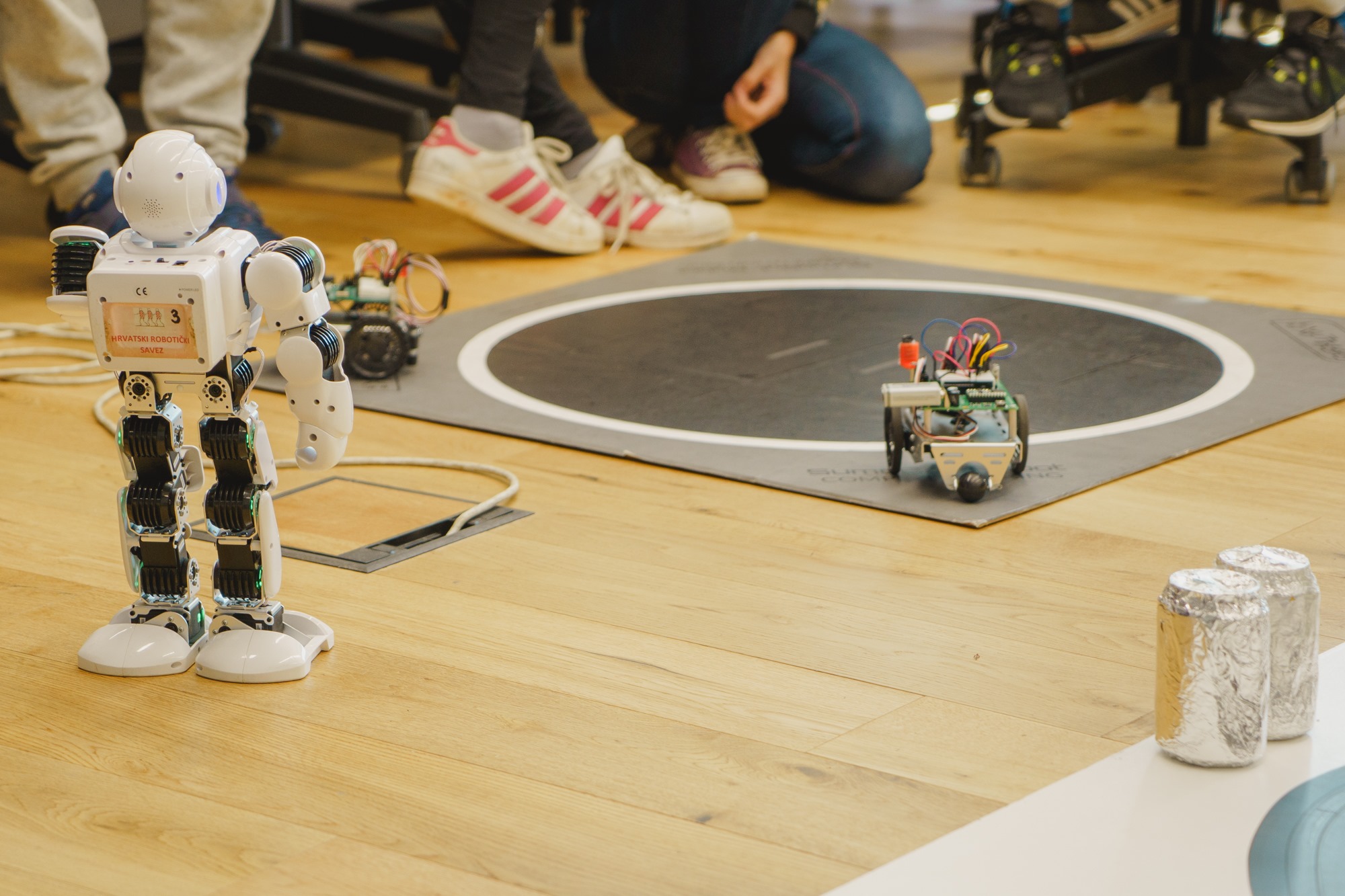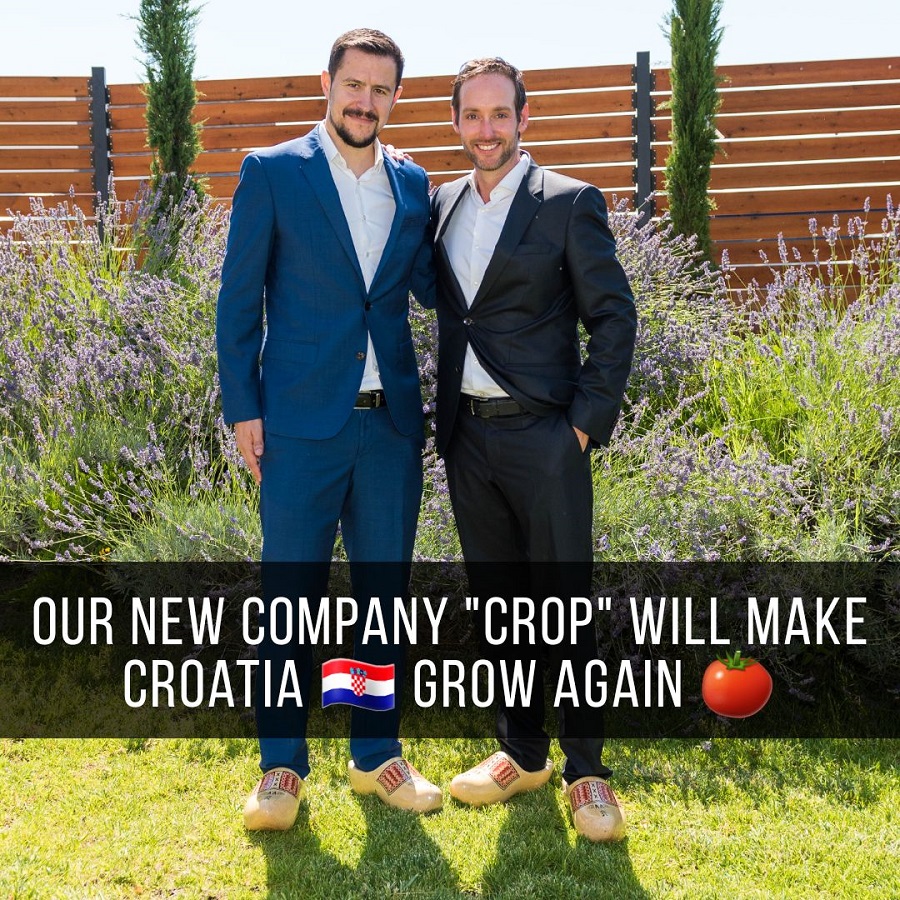Neostar Platform: 35 Million Kuna Put into Croatian Startup's Idea
January the 16th, 2021 - There is a lot to be said for the innovative Croatian startups which have popped up over recent years, with many gaining global respect and recognition among the biggest players. The Croatian Neostar platform is another story of innovation from Croatia.
As Poslovni Dnevnik writes, the Croatian Neostar platform is a new platform for selling, buying and maintaining vehicles. Namely, used vehicles can be advertised and sold free of charge for all legal and natural persons, and customers get a transparent insight into the condition of the vehicle, because the innovative Neostar platform inspects as many as sixty key points, and there is additional security when making a purchase because all of the listed vehicles have either factory or Neostar platform warranty.
Behind the domestic Neostar platform is the Croatian startup Neostar d.o.o., and more than 35 million kuna has been invested in its very development. The long-term goal of the Neostar platform is to attract new investors and investments in order to enable further development of the platform as well as make confident steps into other markets.
"The automotive industry as a whole, and thus the car trade globally, isn't among the leaders when it comes to digital transformation, but we can say that it's even actually lagging behind in this area.
According to previous experience with online sales of new and used vehicles, we've seen room for the consolidation and digitalisation of services not only locally but also globally. That is why we launched the startup Neostar which based in Croatia, but has global ambitions. We see the launch of the Neostar platform on the Croatian market as just the very first step. According to the innovation we're bringing to this market segment, we can say that we're a kind of AirBnb for used vehicles,'' said Dimitrije Trbovic, President of the Management Board of Neostar.
For the latest travel info, bookmark our main travel info article, which is updated daily.
Read the Croatian Travel Update in your language - now available in 24 languages.
Duh u Boci: Hrvoje Busic and Tomislav Anadolac Announce New Products
December the 30th, 2020 - When it comes to Croatian products, the range of alcoholic offers is vast. That doesn't mean however that there aren't those which don't stand out in the crowd. What the likes of Hrvoje Busic and Tomislav Anadolac do, for example, does precisely that.
As Poslovni Dnevnik/Marta Duic writes, Hrvoje Busic and Tomislav Anadolac, the duo behind Old Pilot’s gin and the company Duh u boci (Spirit in a bottle) launched Old Pilot’s Art Edition for the festive period, which was created in collaboration with Croatian artist Marina Mesar, better known as OKO.
Their first and most successful product, London Dry Gin, won the title of the best in the world at the IWSC world competition last year.
This entrepreneurial story began just three years ago when two longtime friends and fellow pilots in a small hi-tech distillery in Zagreb created the now world-famous brand of gin, which they produce exclusively from the highest quality Croatian ingredients, with a special focus placed on the production process.
The duo recently moved to a new distillery, with three times the production capacity, and designed and produced a new product - Old Pilot’s Gin - Barrel Aged Gin obtained by aging in oak barrels, and they're going to continue in that direction in the year ahead.
"We'll remember this year as the one in which we moved to a new, larger space, invested in new equipment and the long-awaited start of whiskey production. With this new space, we got the opportunity to expand production not only in terms of product volume but also the ability to create new products.
In the spring, during the lockdown, we upgraded our equipment and gained the possibility of producing pure ethyl alcohol needed for the production of disinfectants, and today, in the situation of closing the HoReCa channel, we compensate revenues in the retail channel, through web sales and exports,'' say Hrvoje Busic and Tomislav Anadolac.
Here in Croatia, their products are sold through distributors and can be found in all major cities. Most of the sales take place in Zagreb, Split, Dubrovnik, Zadar, Sibenik and Rijeka, and other places in Croatia are covered through online shopping. However, sales through the webshop achieve the lowest percentage in the total sales volume, more precisely slightly less than three percent of the total.
''The biggest sales at the level of the year took place in Zagreb, and during the summer season on the coast. We cooperate with hotel chains such as Valamar, Hilton Dubrovnik, the Dubrovnik Sun Gardens, Le Meridien Lav, the Pucic Palace, Park Rovinj and many others.
The largest volume of products was sold through the HoReCa channel, while a smaller part was sold through specialised stores such as Vrutka, and from October on, people were also able to find us in selected Spar Croatia stores.
Given the decline in sales in Croatia, as well as generally reduced consumption, exports are a significant source of income. During the three years of our company's existence, we've been exporting to the markets of Germany, Switzerland, Denmark, Bosnia and Herzegovina, Australia and Singapore, and we're actively working to enter the Canadian market,'' explained Hrvoje Busic and Tomislav Anadolac.
After investing in more space and new equipment, they started producing whiskey, which was their wish from the very beginning. It is a production that is much more demanding, and they are currently in the testing phase to achieve the desired results.
''Given the time of a minimum of three years required for the maturation of whiskey in wooden barrels, our plan is to schedule production throughout the year for gin and whiskey. It's exciting and dynamic in the distillery, just like it was on the very first day, and that makes us very happy and motivates us in our further work.
The bar has been raised high and we can’t wait to raise it even higher. We're proud of our status of pioneers and initiators of craft production in Croatia and although the competition is growing, a quality product always finds its way to the customer. There are a lot of new products out there now on the market, but a lot of them are disappearing from the market every day.
Returns on investment and production results are often not what people expect and survival on a demanding market is difficult. We have set high, world quality standards that aren't easy to achieve or monitor, and at the moment we're very calm and focused on developing new products and the growth of our distillery,'' concluded Tomislav Anadolac and Hrvoje Busic of Duh u boci.
For the latest travel info, bookmark our main travel info article, which is updated daily.
Read the Croatian Travel Update in your language - now available in 24 languages
Varazdin County Company Awarded EU Cash for Plant Product Manufacturing
December the 28th, 2020 - One Varazdin County-based company boasts one of the youngest Croatian company directors, and has even managed to be awarded significant amounts of European Union (EU) cash for its production of popular plant products.
As Poslovni Dnevnik/Marija Crnjak writes, one of the youngest directors in Croatia, 28-year-old Marko Cerjan, the director of CER-CO from Biljevac in Varazdin County, which produces and processes industrial hemp, presented a project to expand business and build new plants this week, worth a total of 5.3 million kuna
The aforementioned is an EU project which involves the production and commercialisation of innovative products from this Varazdin County company, from CBD oils to cosmetics and various teas, with the introduction of new plant cultures within the range. The investment will increase the already significant export potential of this impressive company and enable new employment, as well as the strengthening of added value when it comes to doing business.
"With the realisation of the project that should be completed in the spring, we want to position ourselves as a white-label company that will provide services to other related companies," said Marko Cerjan, who received an EU funds based grant in the amount of almost two million kuna.
In order to obtain such a grant, this Varazdin County company needed to explain in great detail the benefits of investing in ones health and overall quality of life.
The general goal of the project was to enable investments in the implementation of new solutions, innovative products from SMEs in S3 areas through investments in process innovation and business organisation. The purpose and specific goal of the project was to support the investments of CER-CO in the production and commercialisation of innovative products which are new to the market and will be able to be applied and classified in the S3 thematic priority area called "Health and quality of life".
Currently, this Varazdin County company processes only seeds, stems and flowers, while the implementation of the previously mentioned EU project will see it carry out an additional production process that includes the phase of oil pressing, the production of protein, industrial hemp flour, CBD oil and even cosmetics.
The implementation of the CER-CO project will increase the level of technological readiness and productivity by investing in increasing production capacity in order to effectively meet the needs of existing and potential customers.
As part of that investment, the plan is to purchase equipment for drying raw materials, harvested industrial hemp, separation lines with display, separation and calibration lines, equipment for the automatic filling of bottles, labels, forklifts, packaging machines, and industrial vacuum cleaners.
In addition, a system of Good Agricultural and Collecting Practice (GACP) will be established, and the project envisages the opening of three new work positions. The plan is also to educate the company's employees to work with new equipment as well as an innovative production process.
"In the new 560 square metre building, there will be a production facility of 250 metres square which will house machines for processing medicinal herbs and oil pressing, and the remaining area will include office space with a conference hall, an inhouse laboratory and a sales area with a range of cosmetics other hemp products available.
Next year, the plan is to invest in both plants and machines for the drying of medicinal plants, with specially regulated temperature and microclimatic conditions, as this is very important in drying plants like hemp as it maintains medicinal properties which include cannabinoids and terpenoids.
CER-CO will be the first entity in all of Varazdin County to provide the otherwise extremely demanding service of drying out medicinal plants, as Marko Cerjan explained, whose company generates as much as 90 percent of its revenues from exports.
The products are exported to a number of EU countries, Poland, Germany, Austria, Slovenia, the Netherlands and other countries, and with this investment they hope for even stronger placement on various foreign markets. Additional employment is also planned, as they hope the pandemic will soon subside with the introduction of the vaccine, so that they can continue production, which has failed this year due to poor market conditions.
They cooperate with numerous subcontractors, in Varazdin County alone they grow 30 hectares of industrial hemp, there's also a little in Zadar County, and most of their production takes place in Slavonia, where there are larger areas in which to do it, which makes overall production simpler.
For the latest travel info, bookmark our main travel info article, which is updated daily.
Read the Croatian Travel Update in your language - now available in 24 languages
Ekipa: Mario Likar Returns from Australia, Starts Kombucha Business
December the 27th, 2020 - All too often we listen to stories of Croats leaving the country in search of greener grass, with some returning having realised that grass is more or less the same colour all over the world and is the healthiest where you water it. It's no lie that Croatia has some tremendous economic and political issues that it must at some point learn to face, but in many ways, life here is good. Mario Likar is just one person who returned from the other side of the world to here in Zagreb to start a business.
As Poslovni Dnevnik/Ivan Tominac writes, travelling around the world, seeing it in reality and then returning to Croatia is no longer that much of a new or surprising story. The grass isn't always greener elsewhere, it's just a matter of how you maintain your lawn. They say that behind every good job done there is a good team, and that is exactly what the story with Ekipa (Team) is like. Ekipa, beginning with a capital letter, is the name of a Croatian company that revives old habits, but in a different, more modern way.
The team from Poljicka 6 here in Zagreb is engaged in the production of no less than kombucha. Kombucha has long since been known in this region as mushroom tea, and Mario Likar came up with this idea upon his return from Australia.
The realisation that the first association is a mushroom isn't surprising because kombucha is otherwise a mushroom native to Asia. It is used to make the fermented drink of the same name from green and black tea, active and good bacteria, fungi and sugar.
"It wasn't clear to us what they were talking about. It turns out that kombucha has been widespread in this area as early as the time of our great-grandmothers under the name ''mushroom tea'', and it was used as a folk remedy to help deal with problems like indigestion. It has been domesticated since the 19th century, and it almost completely disappeared from use during World War II due to the lack of basic raw materials - tea and sugar,'' said Ekipa's co-founder and marketing expert, Mario Likar.
Their mission, as they say from Ekipa, is to bring this drink closer to the wider population and give it a modern twist that would bring into the current age and as such, closer to current consumer habits. Kombucha is, in short, a refreshing fermented tea, and as you can guess, the process of making this non-alcoholic drink begins with simply making tea.
''Black tea, green tea, or a mixture can be used. Sugar is then added to the tea to serve as food for the kombucha culture, which is made up of a colony of “good” bacteria and yeast. When the culture is added, a fermentation process begins that lasts from five to seven days, depending on the flavour nuance you want to achieve. The longer the fermentation lasts, the more acidic the kombucha becomes,'' Mario Likar explained.
Consumers in distant Australia love kombucha. There, it is used as a popular alternative to sweetened soft drinks and is often consumed in the same casual way drinks such as lemonade might be.
Likar thought about reviving kombucha here on the Croatian market for a long time, and the moment his friends came to Australia and were delighted with the drink, the desire to return to Croatia only grew. Today, they make up Ekipa's team members.
"We've determined that there is a gap in the market of soft drinks with low sugar produced here in Croatia. In our country, kombucha is still drunk only by people who make it in their own kitchens, and our wish is that, as is the case in the rest of the western and eastern world, it becomes available to everyone who wants to drink something healthy and tasty while hanging out with friends, walking around the city, after working out, or with a meal,'' added Likar.
Although they're currently in a state of market uncertainty caused by the ongoing coronavirus pandemic, Ekipa isn't just wasting time twiddling their thumbs. Instead, they are using these moments to perfect techniques that can increase the efficiency of kombucha production itself. At the same time, they managed to move to real, commercial production.
''The second lockdown prevented us from introducing our products to cafes and restaurants. Fortunately, we were able to connect with other activities in the service sector, which are already familiar with kombucha and are ready to include it in their offer. We're especially glad that our value has been recognised by health food stores, which have become our main allies and advocates,'' said Likar.
At the moment, due to this highly specific and unprecedented situation, Ekipa are focused on retail, but they already know what their plans are when this situation begins to calm down. Their goal is to develop HoReCa channels when the situation normalises, and they also believe they'll manage to achieve sales growth and an increase in production capacity.
"We believe in our product, so we see this crisis as an opportunity, especially because people have become more willing to do more for their health. When things return to normal, hopefully soon, we're optimistic that things will get better. As newcomers to the world of entrepreneurship, who launched an unknown product during a global pandemic, that would bring us the greatest satisfaction and happiness,'' concluded Ekipa's Mario Likar.
For the latest travel info, bookmark our main travel info article, which is updated daily.
Read the Croatian Travel Update in your language - now available in 24 languages
Croatian Bio-Mi Only Company in Southeast Europe Making This Product
December the 18th, 2020 - the Croatian Bio-Mi company has succeeded in standing out among the rest owing to the fact that it is among only a few in Europe, and is the only one in this part of Europe to produce one material.
As Poslovni Dnevnik/Darko Bicak writes, the Croatian Bio-Mi is the only company here in Southeast Europe, and one of only a few in Europe at all, which produces biodegradable and compostable thermoplastic raw materials that are used for further processing into finished products.
As Filip Miketa, co-owner and director of the Croatian Bio-Mi explained, after four years of hard work in terms of research, which is supported by 2.75 million euros from eight and soon nine EU projects, the company is now positioning itself out on the market.
Although the Croatian Bio-Mi is a relatively new company, having only been around for three years and enjoying modest revenue of around 2.5 million kuna last year with nine employees, it's dealing with a much larger and longer project. Namely, Filip Miketa worked for years within his family company Mi-Plast, which has existed for about 40 years and which deals with the recycling and processing of various plastics.
Miketa was also in charge of research and development at Mi-Plast, and in the previous period he withdrew significant EU funds, around 2.5 million euros, for various Mi-Plast projects. “In the last six months, we've invested in higher production capacities and raising production and productivity of both obtained and produced formulations, which is a very expensive process.
It should be mentioned that bio-polymers themselves are non-processable, but that's why we and companies like us mix and assemble them into functional items and process raw materials consisting of several components. At the moment, we have a couple of competitors in Europe, and these are more or less large and serious companies because in this segment, smaller companies like us are a rarity,'' pointed out Miketa.
He added that, in addition to materials, the Croatian Bio-Mi has invested and still plans to further invest in processing these materials into final products such as food packaging, bags for the separate collection of biodegradable waste, mulch foil for agriculture that decomposes on the ground for which there is no need for collection and disposal, etc.
"Basically, these are products that make sense and that the European Commission counts on in all of its plans and strategies because they're raw materials and products that are bio-based and are designed to help society with the disposal of organic waste by encouraging the circular bioeconomy.
These materials and products, in addition to composting and/or biodegradation under different conditions, can also be mechanically recycled, just like traditional plastics such as PE, PP and PET. Therefore, each of these materials and products boast several possibilities for an efficient and sustainable end of life, but of course, composting with other degradable waste is preferred,'' explained Miketa, adding that, for example, bags for the separate collection of organic waste are composted together with waste, and EU countries have increased their share of organic waste recovery.
Thus, he says, northern Italy has reached a recovery of as much as 80 percent where compostable plastics have played a key role. He is aware that this is not the case here in Croatia for now, but he is convinced that, due to EU regulations and the general overall development of public awareness, recovered organic waste will represent about 40 percent of waste accumulated here in Croatia.
Therefore, he pointed out, biocomposite materials and such products should be viewed from that angle because they're there to help where conventional plastics has failed, but the most important thing is to check the characteristics on the product.
''Namely, in the last few years, we've witnessed false propaganda and only two certification companies in the EU are responsible for issuing certificates through authorised certification laboratories. Basically, the Croatian Bio-Mi got its first TUV certifications according to EN13432 that our materials and products are compostable, which in the case of material certification, is a pretty big deal,'' he explained.
In addition to the certification of the first formulation of MI3 blend, this innovative company is preparing for certification of other blends that are not only compostable in industrial and domestic compost, but are degradable on soil and in seawater.
It isn't only important whether the product decomposes or composts, it's important what is left there after the fact, so it's best to see the results of product analysis "from cradle to grave" where bioplastics and compostable plastics have an advantage over fossil traditional plastics or the far worse oxodegradable plastics.
The Croatian Bio-Mi director believes that compostable and biodegradable plastics can offer better and more sustainable solutions here in Croatia, and many EU countries are switching or have switched over to this type of material and products based on many years of work, research and development, but also owing to scientific facts and analyses.
EU regulations are becoming stricter towards the use of classic plastic, and a new proposal for the Croatian Waste Management Act, for which the public debate has now ended, is on the same track. However, the Croatian Chamber of Commerce warns that its implementation in this form would lead to problems for about 30 small and medium-sized companies with about 800 employees engaged in the production of disposable plastic products, mainly PVC bags.
The Croatian Chamber of Commerce proposes that the law introduce an intermediate model for disposable plastics that contains recyclables and that would be allowed as such. The Croatian Chamber of Commerce is also aware that there is no technology that would determine whether there is recycled plastic in a particular plastic and in what percentage, so they'd solve this problem with chamber certificates that would "guarantee the principle of material traceability".
For the latest travel info, bookmark our main travel info article, which is updated daily.
Read the Croatian Travel Update in your language - now available in 24 languages
25 Things Which Made Croatia Shine in the Pandemic Year of 2020
December 12, 2020 - This is the year to forget for all of us. Or is it? Look on the bright side - 25 things which made Croatia shine in the pandemic year of 2020.
There are only 20 days to go until the (hopefully) brighter lights of 2021. I am sure that many of you, like me, have lived about ten lifetimes this year, the most chaotic, stressful, unpredictable and scary perhaps ever. But we are still here, hanging on, and hoping for better things.
But 2020 was not such a disaster for everyone. In fact, if you take a step back from all the doom and gloom and try and look on the brighter side of life, there is an awful lot of positivity to celebrate, especially if you are Croatian. In an effort to balance the understandable depressive posts on the web, here is an ode of recognition to 25 things which made Croatia shine in the pandemic year of 2020.
1. Croatia gets its first unicorn - bravo Infobip
Croatia may not be home to the headquarters of the major tech companies, but it does have a thriving IT startup scene, with an increasing number of IT companies excelling on the world stage. Top of the list is Infobip, and 2020 was a landmark year for both Infobip and the Croatian IT sector, as the Istrian company officially became Croatia's first unicorn. Read more in Infobip: Croatian Company Raises 200 Million US Dollars for Investment. It was an extremely busy and successful year for the company, and you can follow its progress on TCN's dedicated Infobip section.

2. Nanobit sells for US$148 million
Not quite a unicorn, but equally impressive was the sale of Nanobit to Swedish company Stillfront for a cool US$148 million. What started out as a journey with a fitness app for founders Alan Sumina and Zoran Vucinic 12 years ago quickly took off after they saw and took advantage of an opportunity in the gaming industry. Read more in Croatian Nanobit's Sale to Swedish Stillfront Will Continue Growth, and for more on the Nanobit success story, check out the TCN Nanobit section.
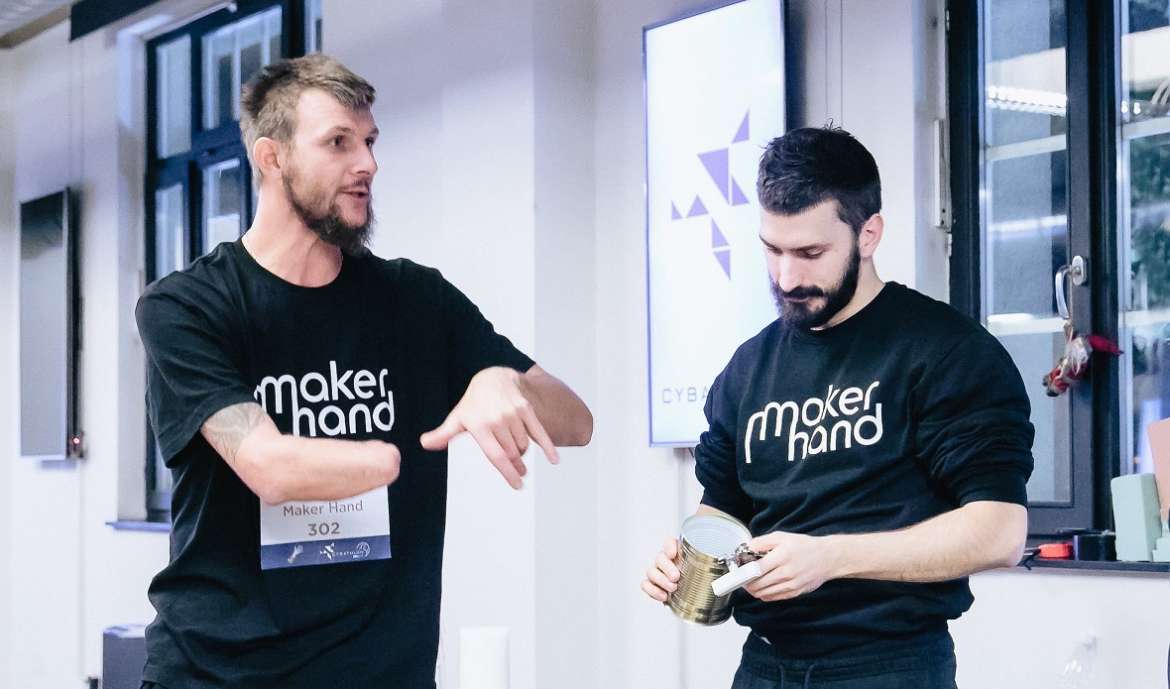
3. Andrej Djukic, a Rijeka genius producing quality prosthetics... for free
Not all Croatian tech successes are about the money, and Croatian innovation stretches across an array of sectors. A worthy inclusion in this list of Croatian 2020 success is Andrej Djukic. Born in Rijeka in 1991, Djukic won the Cybathlon world championship, an international sports competition for people with disabilities in which the most modern prosthetic equipment is used. With an open-source project available to everyone, Andrej wants to provide functional solutions without financial burden for prosthesis users and their families, as he believes access to medicine should be free. Read more in Andrej Djukic Wants Winning Prosthetic Hand Project to be Available to Everyone.

4. Infinum and the Porsche connection
Rimac Automobili may be the most famous Croatian company attracting investment from the biggest names in the global auto industry, but it is not the only one. Infinum, a Croatian global player in the software design and development sector, announced a partnership in September with Porsche Digital, a subsiduary of German Porsche, that it was launching the Porsche Digital Croatia company in Croatia, for software design and development, artificial intelligence, and machine learning, which will see a 10 million euro investment. Read more in Infinum and Porsche Digital Invest 10 Million Euros in Joint Company in Croatia. More on the latest from Infinum here.
5. Bugatti, a global brand with a Croatian address, and another amazing year at Rimac
Where to start with Mate Rimac and his Rimac Automobili company in Sveta Nedelja? Croatia's one-man car industry had already secured investment from both Porsche and Hyundai before the year started. What was in store for 2020? Despite the last-minute cancellation of the Geneva Motor Show in February, it was another exceptional year for Rimac, which TCN documented in 30 stories over the year. The Rimac story of the year was undoubtedly Car Magazine: Rimac Automobili to Takeover Bugatti, but special mention should also be made of THAT video, above, Live and Work in Croatia, easily the best promotional video about Croatia in the last few years (at least in my humble opinion).

6. Croatia, leading the world in polar discovery cruiser construction
While Rimac might rule the world with the fastest hypercar, Croatian excellence was taking tourism discovery far beyond parts of the world which have roads. Last year saw the launch of Scenic Eclipse, a luxury polar discovery cruiser - a new type of cruise ship combining the cruise ship experience with the luxury super yacht. The last vessel to be produced in the Uljanik shipyard in Pula at a cost of 200 million euro, Scenic Eclipse won international awards within weeks for its quality, and so impressed with Croatian shipbuilding expertise were the Australian owners that they ordered 5 more to be built in Rijeka. You can follow this ongoing story of Croatian shipbuilding excellence here.

7. Rudjer Boskovic Institute builds 100% spy-free communications system
The boffins at the world-famous Rudjer Boskovic Institute also had plenty to smile about in 2020, not least for their most notable achievement of the year. In an era where secure communications are ever more important, the Rudjer Boskovic Institute built a 100% spy-free communications system. This was one of a number of notable achievements, more of which you can read in the dedicated TCN section.
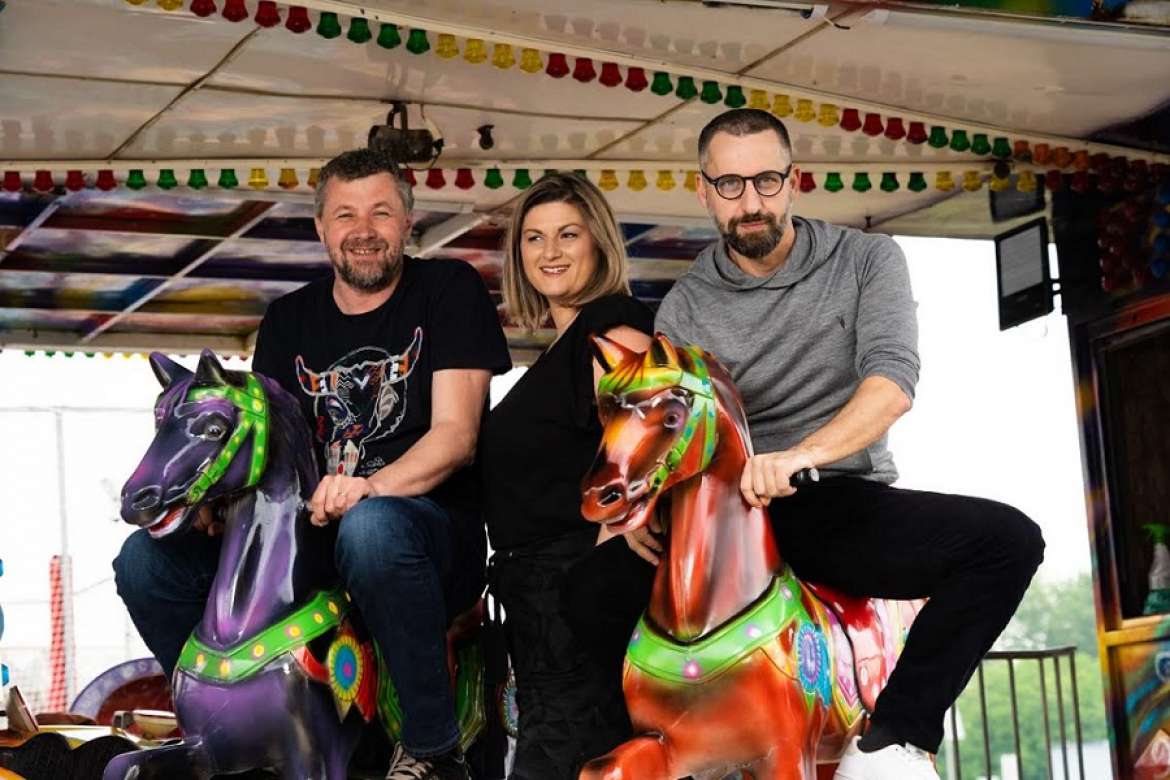
8. Human beats Google to win the Webby Oscars
You have to be pretty good to beat Google in any Internet award, but that is exactly what Zagreb company Human managed in May, as they beat the other four finalists - Google, Samsung, KLM and Khan Academy, to win the category of Best Website Practices at the 2020 Webby Awards, considered to be the web 'Oscars.' In all, there were over 13,000 entries from 70 countries. Read more in Croatian Agency 'Human' Beats Google in Webby’s Best Practices Category.

9. Croatian company Q among 20 best IT Companies in the world
There was more recognition for Croatia's IT industry in October, as Clutch, the world's leading research agency for ranking IT companies, placed Croatian company Q as one of the 20 best global web development companies in the world, among the top ten in Europe, and the best B2B company in Croatia.
"We are proud that Clutch, as the world's best-known IT ranking platform, has recognized Q as one of the best agencies in Europe. As many as 9 of Q's 10 largest clients are the world's leading companies in their industries. This is a great confirmation to the whole team we are raising the projects we are working on to an even higher level,” stressed CEO Filip Ljubic. Croatian Company Q Among 20 Best IT Companies in World.
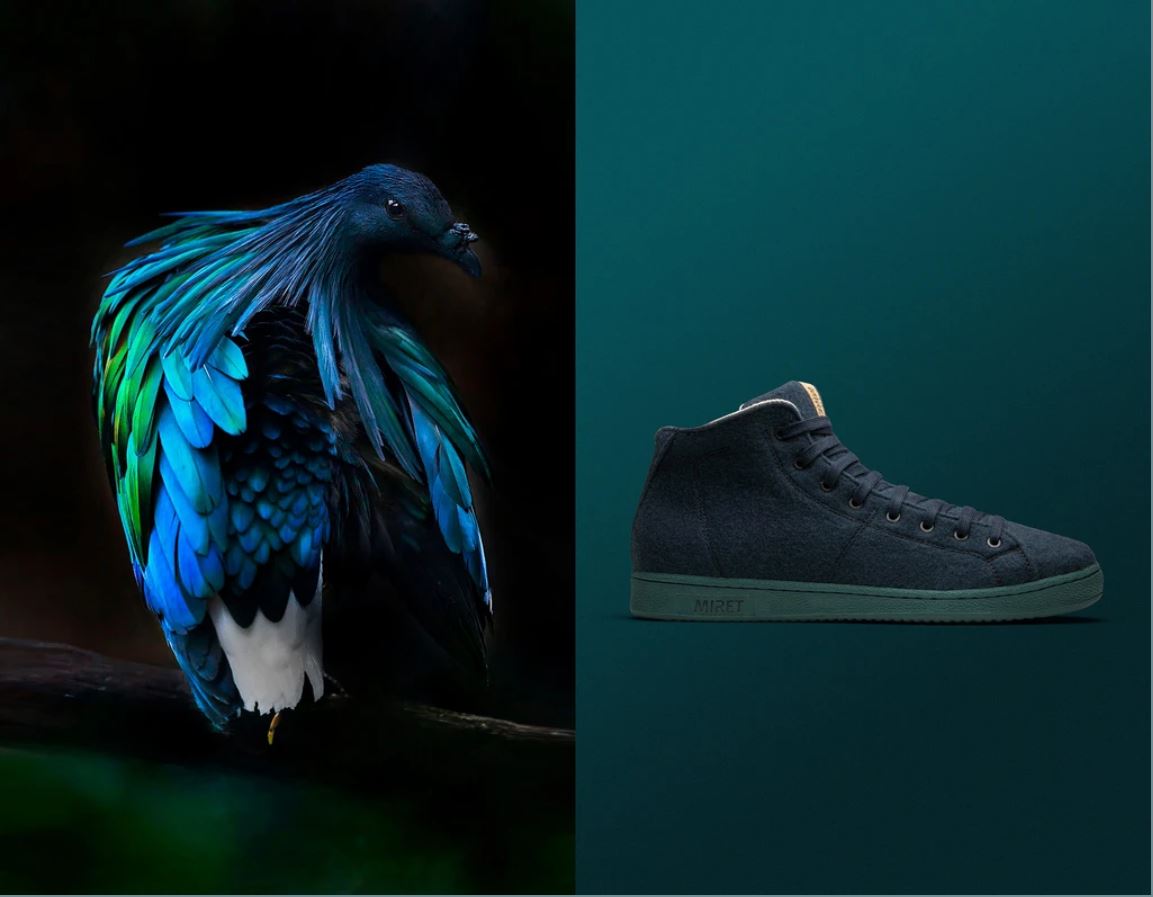
10. MIRET develops stylish sneakers from 97% natural products
One of my favourite Croatian startup stories hit new heights of excellence in 2020. Having produced the world's first eco-sneaker back in 2016, from predominantly natural, biodegradable products, the Boljar brothers and their MIRET show brand went even better this year with the launch of their Forest Dark range, based on the colours of 5 of the world's endangered species to highlight their plight, and made from an impressive 97% natural products. In an industry that produces 20 BILLION shoes a year, all of which are thrown away, the time for change is now. Read more in With 20 BILLION New Shoes a Year, Meet MIRET's 97% Natural Eco Sneakers Collection.
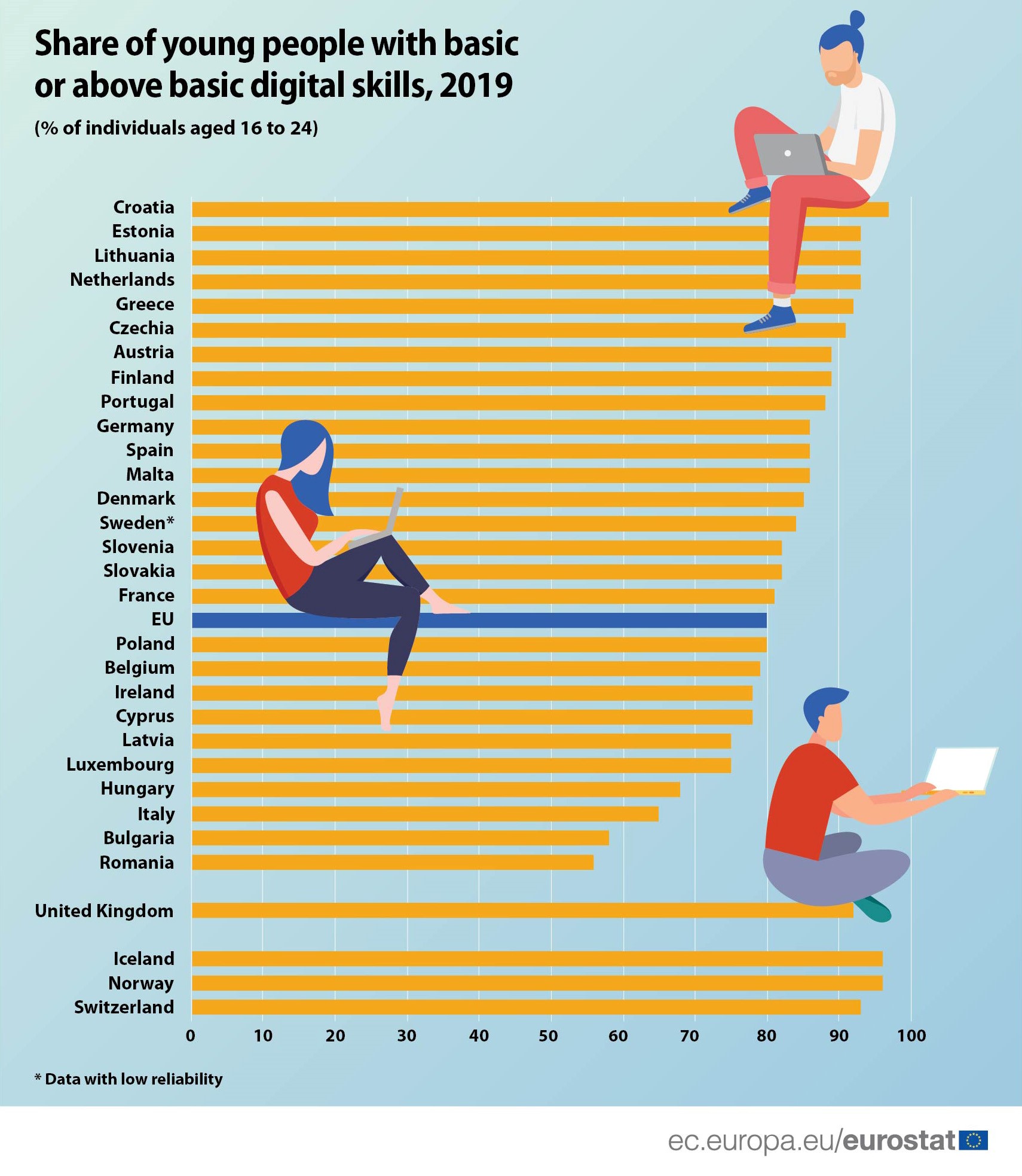
11. Young Croats have the best digital skills In Europe
The future of Croatia is in the next generation, and equipping them with the necessary digital skills to compete in this fast-changing world is an important challenge.
And it appears that things are on track. Figures released by the European Union/Eurostat show that young Croats have the best digital skills in Europe. 97% of 16 to 24-year-olds in Croatia have basic or above basic digital skills. Read more in Young Croats Have The Best Digital Skills In Europe.
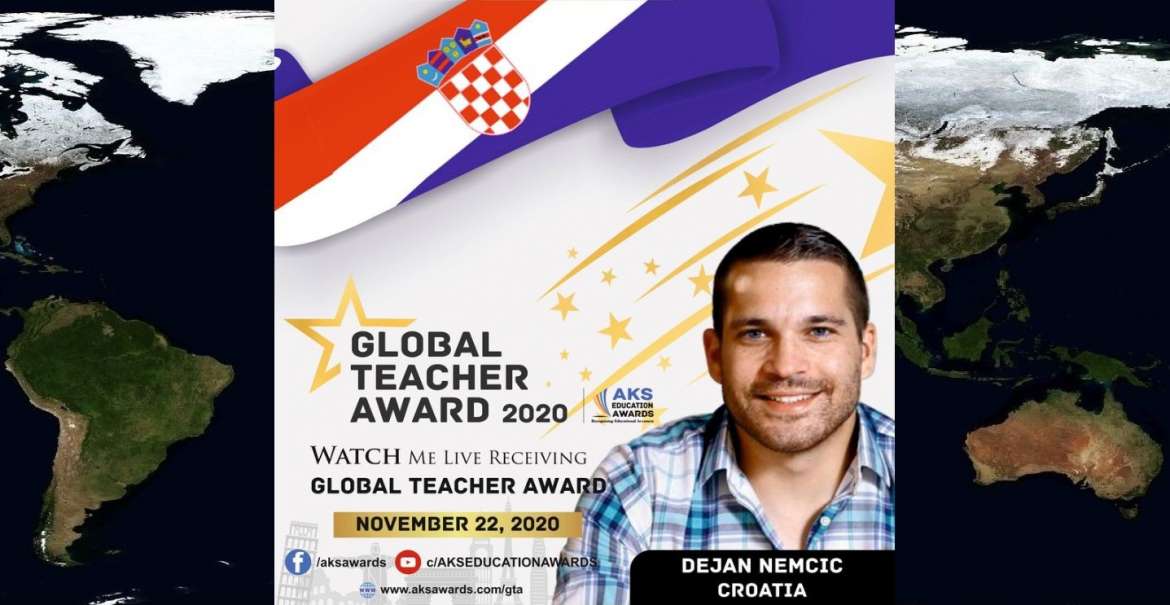
12. Dejan Nemcic is the best geography teacher in the world
A key ingredient to a good education is access to the best teachers, and pupils at Ivo Andric Elementary School in Sopot, Zagreb have got exactly that, in the geography department at least. Teacher Dejan Nemcic received what will be the highest accolade of his career in October, as he was named the best geography teacher in the world at the annual Global Teacher Awards. Here is how he did it.
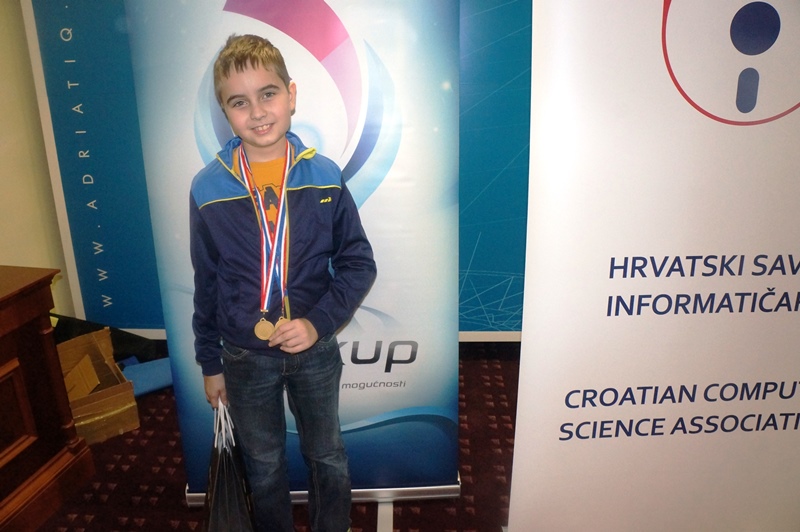
(Dorijan Lendvaj Facebook)
13. Dorijan Lendvaj, a teenage robotics world champion
And sometimes in Croatia, perhaps some kids don't need much teaching at all. A young genius from Popovaca, Dorijan Lendvaj, first came to our attention back in 2016 as a 13-year-old. After six national titles, he became the world champion in robotics. And it seems that the teenage years have not slowed down his genius. Only this week, young Dorijan was back in the news, claiming top spot in the International Romanian Master of Informatics.

14. Istrian olive oil named the best in the world - again!
Tourism and gourmet excellence are usually prevalent in the media when talking about Croatia, but with the pandemic dominating everything, tourism and gourmet stories were a little more muted than in more normal years. But you can't keep a very good story quiet, pandemic or no pandemic. For the SIXTH year in a row, the experts at Flos Olei came to the same conclusion as everyone in Istria - Istria is the very best olive oil region in the world.
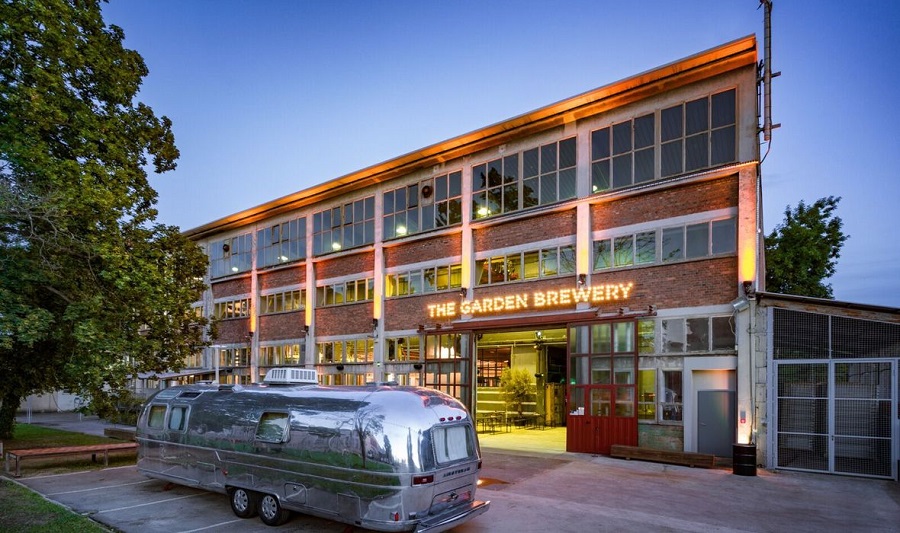
15. Where does the best beer in Europe come from - Croatia of course
Croatia has never really been known as a country with excellent beer, but is that changing? After more than 400,000 ratings and votes from over 50,000 beer fans Zagreb-based The Garden Brewery was voted the best brewery in the EU by Beer52 in their first ever awards. Beer 52 was founded in 2013 and is the world’s most popular beer club with over 50,000 UK people subscribing to get a box of craft beers delivered to their door every month. The Garden Brewery beat off competition from some 9,500 breweries to win top spot.
The craft beer scene has exploded in recent years, with some really innovative new beers. While we are on my favourite subject, it is worthwhile mentioning a new product just released called Chef's Beer, bringing together plenty of Croatian gourmet excellence - chef Mate Jankovic, Zmajska pivovara, Bibich Winery, Varionica, and Slovenian Barut brewing & blending.
16. CROP Hrvatska - making Croatia grow again
Food and technology. A new initiative from Split-based Dutch entrepreneur Jan de Jong and Croatian PR guru Jerko Trogrlic to grow tomatoes in northern Croatia makes this list of excellence even though no tomatoes have actually been grown yet. De Jong is of the opinion that Croatia should return to the days when Slavonia fed not only Croatia, but also the region, and that Croatia should become a net exporter of food once more. Using his contacts back home with agricultural technology, as well as Trogrlic's know-how and contacts, the pair announced plans to grow tomatoes on a 5-hectare plot in an economically depressed part of northern Croatia, creating an initial 72 jobs. If successful, the project would be upscaled considerably. Within 48 hours of announcing the project on LinkedIn, de Jong had received investment interest from all over the world totalling 5 million euro. One to watch in 2021, and you can learn more here.
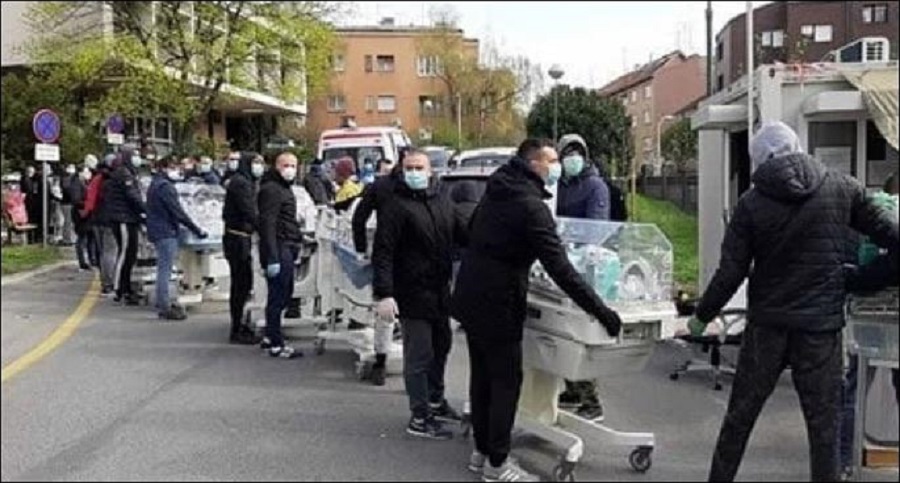
17. The Zagreb Earthquake volunteer response
While the rest of the world will remember 2020 for COVID-19, residents of Zagreb and surrounding area will have additional horror stories following the devastating earthquakes of March 22. The first quake hit at 06:24 in the morning, and TCN was the first to publish the breaking story in English at 06:39. It was the first of more than 60 articles TCN wrote about the earthquake. One thing became immediately clear, and something that we have known from previous crises - the generosity and resilience of the Croatian people in adversity is one of their most enduring and endearing qualities. And the combined devastation of the pandemic and the earthquake brought out the best in people. Perhaps symbolically, nowhere was this better emphasised than with the efforts of the Bad Boys Blue brigade from Dinamo Zagreb and their noble assistance moving newborn babies from Dubrava hospital after it had been damaged.
It was a terrible time in Croatia, but the resilience of the people gave a lot of strength.
18. Zagreb hospital wins medical Oscar for care of premature babies during the Zagreb earthquake
Earthquakes are not perhaps the place one would expect to win an Oscar, but that is exactly what happened this week, as KBC Zagreb won the medical equivalent of an Oscar at the annual International Medis Awards. This Oscar of Medicine was awarded for the outstanding achievement in medicine and outstanding efforts by medical staff at the Women's Hospital in taking care of patients, particularly premature babies during the earthquake. Read more in Zagreb Hospital Wins Medical Oscar for Care of Premature Babies During Earthquake.
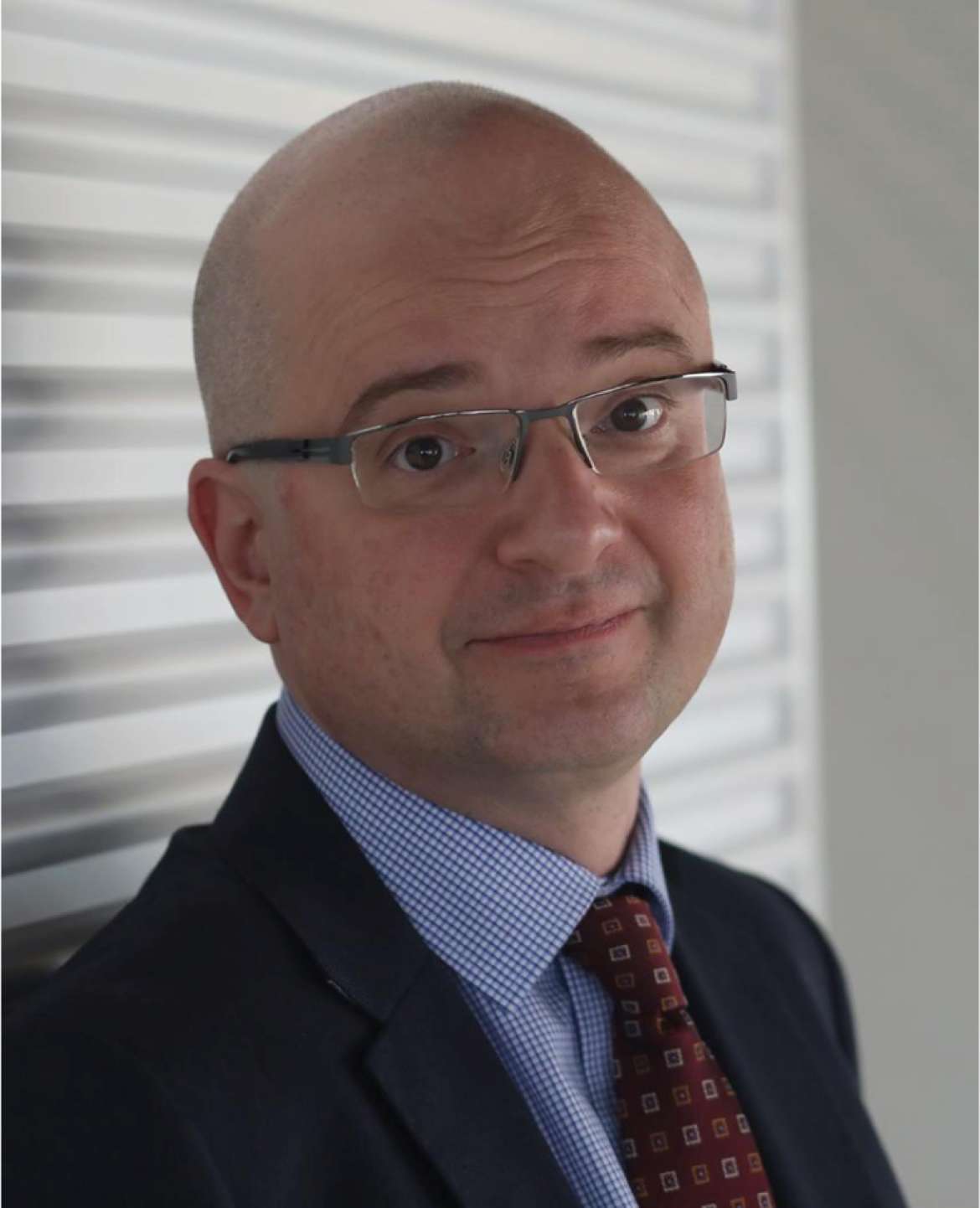
19. Igor Rudan, Ivan Djikic and Ivica Letunic among the top 0.1% most cited scientists in the world
Understanding the true threat of COVID-19 has been one of the challenges of 2020. With so many keyboard warrior experts, conspiracy theorists and fake news specialists, trying to get a true picture of the real issues has been a constant battle. One early beacon of calm during the crisis was Professor Igor Rudan of Edinburgh University. HIs authoritative texts in the first half of the year became essential reading. When I reached out to Igor to publish some of them on TCN, and he readily agreed, before then agreeing a translation partnership for his books with TCN editor Lauren Simmonds. You can see Igor's TCN articles here.
Demand for Igor's insights and expertise ran far beyond this small portal, and in November, it emerged that he was in the top 0.1% of cited scientists globally.
(Article edit: Thanks to reader Karlo for pointing out that Igor Rudan was actually one of three Croatian scientists in the top 0.1% more cited. Here are links to the citation info for Igor Rudan, Ivan Djikic and Ivica Letunic.)
20. Croatia filming locations are best again as Succession bags 7 Emmys
With messages of Stay Home, Travel Later, 2020 was never going to be the best year for tourism excellence. But that did not mean that promotion could not continue. Following the global exposure of Kings Landing and the numerous Game of Thrones filming locations, Croatia's attractiveness as a filming location was once more in the spotlight. This attractiveness was reinforced as HBO's 'Succession' bagged 7 Emmy Awards.
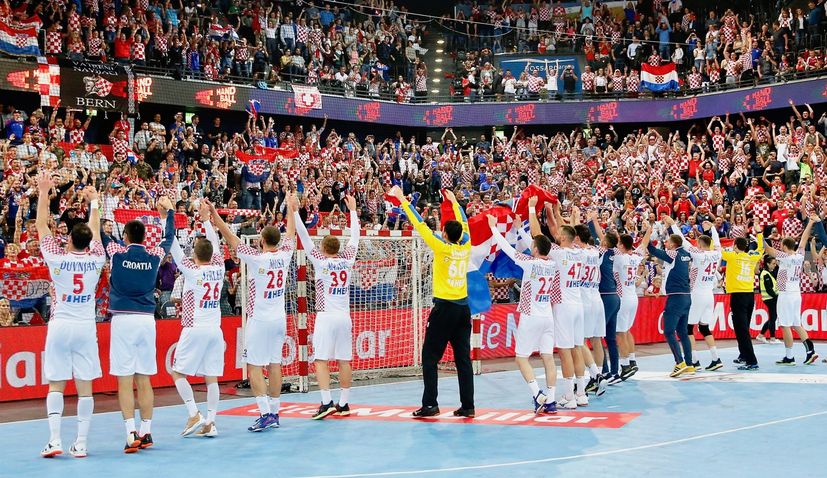
Photo HRS
21. Croatia's men take handball silver at the 2020 Euros
2020 was supposed to be a year of Croatian sporting glory. Would the Vatreni go one better than in Moscow 2018 and win Euro 2020? How many golds would Croatian athletes bring home from Tokyo? Alas, there was nothing to report, as corona saw to it that neither of these major events took place. But that does not mean that Croatia ended the year with no sporting success to report. Back in January, before the first case of the virus was recorded in Croatia, the Croatian men's handball team were conducting heroics in Stockholm at the European Championship, coming home with a very creditable silver after losing 22-20 in the final with Spain.
22. Stipe Miocic becomes best heavyweight MMA fighter of all time
But no year is complete without a true Croatian champion, and in the absence of the Olympics and Euro 2020, it was left to heavyweight MMA fighter Stipe Miocic to step up. And step up he did, becoming the best MMA heavyweight fighter of all time in August, after beating American legend Daniel Cormier.
23. EnterCroatia form - COVID-19 bureaucracy the envy of Europe
Three more items to make it to our list of 25 things which made Croatia shine in this craziest of crazy years, and people will perhaps be surprised that they are filled with a topic for which Croatia is not known for its excellence - bureaucracy.
The pandemic brought so many problems and new situations, as well as the need for fast reactions and innovative solutions. One of the great unsung heroes of 2020 are the Croatian border police. Not only did they assume the jobs of the ministry of tourism and national tourist board in handling the bulk (and it WAS bulk) of the enquiries from tourists desperate for travel information, but they also implemented a border control system in just 8 days which was not only ahead of its time, but also the envy of Europe.
If you entered Croatia after May, you will have come across the amazing Enter Croatia border form, which slashed waiting times at borders. It was so effective that we calculated it saved some 21.7 YEARS of waiting in the first three months of operation. It was the first - and the fastest - such border control system in the EU this year. An outstanding effort.
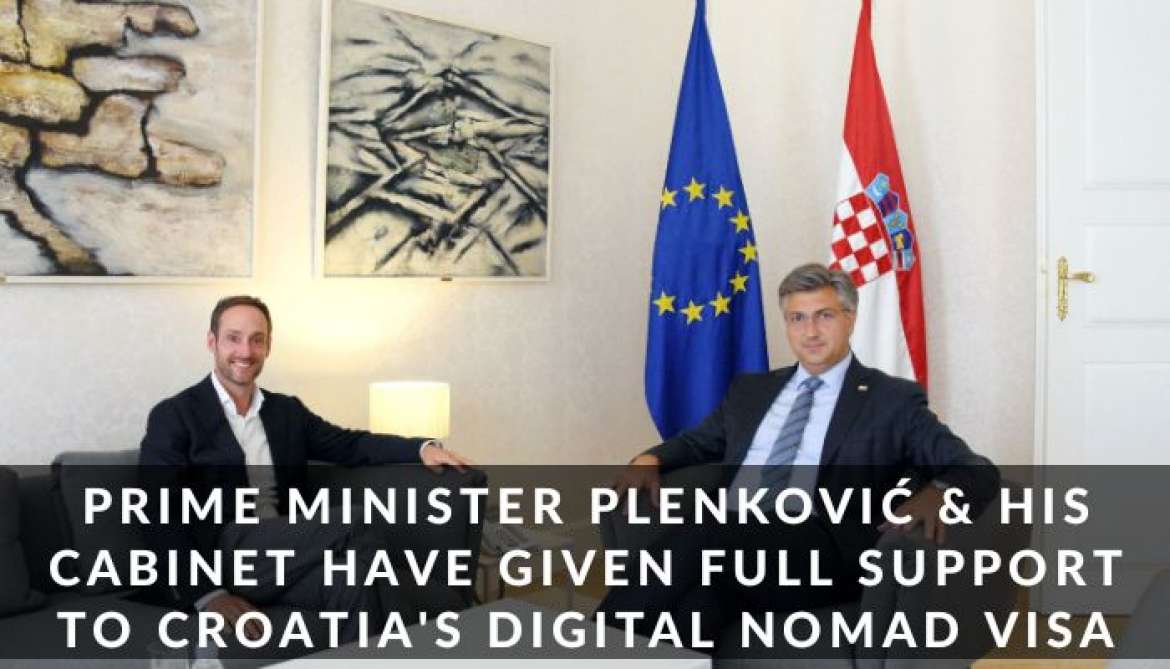
24. Croatian bureaucracy 2.0 - the arrival of the digital nomad visa
If the Croatian police could come up with such an effective system in 8 days, then what else could be achieved in this land noted for its horrendous bureaucracy? That Dutchman Jan de Jong managed to get an encouraging answer to that question. Just 44 days after writing an open letter on LinkedIn to Prime Minister Andrej Plenkovic, de Jong found himself in a meeting with the Croatian PM, after which Plenkovic tweeted that his government would be pushing for the introduction of a Croatian digital nomad visa.
Progress - by Croatian standards - has been quick, with some of the legislation already ratified. The visa will be available I would estimate in the first quarter of 2021 (technically from January 1, but I would think early March more likely). My guess is that there will be the following requirements - proof of health insurance, no criminal record, a visa fee of less than 100 euro, and a proven income of between 1,500 - 2,500 euro a month. I don't expect nomads to have to pay tax in Croatia, but they will also not be allowed to do business with Croatian companies with the visa. These issues will become much clearer in the next two weeks, starting with a tax announcement next week. To follow the latest, follow the dedicated TCN digital nomad section.

25. Sveta Nedelja, a blueprint for entrepreneurial and bureaucratic excellence and change for Croatia
And finally...
I wanted to save for last what has been one of the great discoveries of 2020 for me personally - the amazing story of entrepreneurial and administrative success in the town of Sveta Nedelja, just outside Zagreb. Perhaps best known as the home of Rimac Automobili, my first visit to Croatia's youngest town in September revealed a MUCH bigger story that the world's fastest electric car maker. And there are surely lessons to be learned here for other towns and cities in Croatia, so that their citizens and businesses can enjoy similar benefits.
In an age of mass emigration, rising unemployment and cuts in public spending, Sveta Nedelja is showing that there is another way. Its population has grown 10% since the 2011 census, jobs have increased 20% since 2017 alone, unemployment is an enviable 3.9%. And far from cutting public services, the town introduced free buses for all earlier this month. In addition to this, it is the most transparent local administration in the country, and it was recently named the best medium-sized town in Croatia for the economy for the third year in a row, as well as in the top 5 places in the country for quality of life.
From small acorns, mighty oaks grow. Croatia needs more acorns like Sveta Nedelja. You can read more about my findings in Sveta Nedelja here.
2020 has been a horrendous year, and it is easy to be depressed. But if you surround yourself with positive people and stories, you will find that your own outlook is a lot more positive. I often say that there is a default negative mindset in Croatia, but there really doesn't need to be. For there really is excellence and opportunity everywhere - we just need to change the mindset. Something I discussed at the recent LEAP Summit in Zagreb. with my presentation Injecting Positivity into the Default Negative Croatian Mindset, which you can watch below.
Meet Megi - Croatian Mindsmiths' Virtual Healthcare Assistant
December the 9th, 2020 - With the coronavirus pandemic posing a constant threat to the normal functioning of the enfeebled Croatian healthcare system, the likes of Andrija and now Megi have been a blessing. Artificial intelligence is certainly the way to go in many a sector, and the the pandemic continuing to reign strong, the help of the Croatian Mindsmiths' creation, Megi, is proving invaluable.
As Lucija Spiljak/Poslovni Dnevnik writes, Croatian Mindsmiths developed Megi the virtual healthcare assistant in collaboration with the Magdalena Clinic using AI, and they presented it at an online conference on Tuesday. Her digital brain was modelled on the knowledge of experts, primarily cardiologists, as well as cardiology nurses.
Last Sunday, blood pressure was measured five times a day three hours apart to get a detailed picture of the condition monitored by Megi, a virtual healthcare assistant from the Croatian Mindsmiths, an Al startup, who helps people with hypertension, a chronic disease which causes high blood pressure.
As many as 40 percent of people over the age of 25 suffer from hypertension, of which they're unaware, it affects 31 percent of the adult population, but only 1 in 25 people actually has the disease under control. Long-term exposure to high blood pressure can cause strokes and heart attacks, kidney and heart failure, not to mention severe chronic disease.
During the testing process, the Croatian Mindsmiths' innovative creation stated the measurement and explained everything in detail, step by step, and those undergoing Megi's tests almost forgot that she isn't actually a real person but a product of artificial intelligence (AI).
She also checked family histories with other necessary risk factors for high blood pressure, and after collecting all of the data, she made an assessment of the situation with Dr. Aleksandar Trbovic, a cardiologist and head of the Magdalena Polyclinic in Zagreb, with whom she scheduled a meeting for the second day to see if there was any cause for concern.
''Megi helps us doctors to precisely dose therapies, speeds up processes, and the added value for our community is that it reduces the costs of treating hypertension and its possible complications," explained Dr. Trbovic.
Megi's initial development took six months before direct contact with patients and physicians could begin, and since then, she has been integrated into the actual hospital system and has been caring for more than 80 hypertensive patients for twelve months.
''With Megi, the time to gather information is shortened from fifteen minutes down to a mere four, while the time of therapy can be shortened from six months to three weeks. The digital assistant has a plan for you, monitors and reminds you to measure your blood pressure, calms you down and encourages you when you're worried.
If Megi notices that things aren't going well, she will alert and call a doctor. We have set a goal - if we can use AI to copy the brain of one expert and help one person, then we can help millions of others. In reality, people wait in hospitals for months to get a diagnosis, and Megi can relieve almost 80 percent of such check-ups,'' said Mislav Malenica, the director and founder of the Croatian Mindsmiths, who recognised healthcare as the first sector in which AI should be applied.
The director of digital health at the Magdalena Clinic, Nina Sesto, warned of predictions that by 2050, 40 percent of people in Europe will be over the age of sixty, which means they will more than likely have one or more chronic diseases to cope with.
“Artificial intelligence is the key to healthcare scalability. At the same time, it can take care of thousands of patients,'' pointed out Sesto.
Mirjana Lackovic suffers from hypertension and has been using Megi's help for twelve months now. "If my blood pressure doesn't adjust, I contact Megi until the condition normalises. If it's bad for a couple of days, she contacts the doctors,'' said Lackovic, while Stipe Knezovic points out that Megi is kind, acts in a calming manner just like a real nurse, and the feeling, he says, is just like having a pleasant conversation with a real person.
Megi has recently become part of the process of treating patients with hypertension at the Health Centre in Zagreb, in eight chronic patients cared for by Dr. Renata Romic, who especially praises the positive psychological effect in moments when blood pressure starts to jump up, because through conversation, the Croatian Mindsmiths' incredible creation suppresses additional stress and further blood pressure issues.
Clinical testing of the Megi prototype has shown huge potential for the application of AI in the healthcare sector and a drastic increase in efficiency in the treatment of chronic patients, so they expect, as was concluded Jan Stedul from the Croatian Mindsmiths, that Megi will gradually spread to all healthcare institutions.
For the latest travel info, bookmark our main travel info article, which is updated daily.
Read the Croatian Travel Update in your language - now available in 24 languages
New Award for Lino Lada Ice Cream from Podravka and Ledo
As Novac writes on the 10th of October, 2020 - Lino Lada ice cream, created in collaboration with Podravka and Ledo, won the Golden Basket (Zlatna Kosarica) for the best product in the year 2019, a prestigious annual award given by the magazine I TRGOVAC.
In the category in which there are traditionally the largest number of applicants and strong competition of top Croatian products, Lino Lada ice cream won the expert jury over with its unique taste and innovation. The Golden Basket is a new big recognition for Lino Lada ice cream, which was declared the best in the world at the International Ice Cream Consortium in Sweden last year.
''The Golden Basket for Product of the Year confirmed that, together with our partner Ledo, we've recognised the potential of expanding the range of Lino Lada cream spreads into new innovative categories such as impulse ice creams. In the past period, Lino Lada ice cream has achieved exceptional results and delighted consumers on both the domestic and global markets. The Lino Lada brand is once again proving to be a favourite cream spread, and winning the Golden Basket for the product of the year for the second year in a row is an additional confirmation of the quality and innovation of Podravka's products,'' said Vesna Visnic, Podravka's Director of Kids' Food, Sweets and Snacks.
''We're extremely honoured to have received this award as another proof of the quality of what we do, for Lino Lada ice cream, which we made in collaboration with Podravka, which is truly the perfect partner for such an attractive and innovative product. In addition, it is a confirmation dedicated to the hard work of our employees, and especially the development team that successfully turns their creative ideas into the finest ice creams and frozen products. So, congratulations to them too! Every year we try to develop some new flavours and combinations and take a step further in the desire to innovate and enhance our creativity to meet the most diverse requirements of our customers and consumers, because they're our number one priority. This shows that we're succeeding in that,'' said Stela Ilijas, Assistant Director of Marketing and Development.
Lino Lada ice cream was first launched on the market in April 2019. In just a few days since the launch, the first stocks were sold out, making it the most sought-after dessert in all of the Republic of Croatia, and a total of 2.8 million pieces of Lino Lada ice cream were sold on the Croatian and foreign markets last year.
For the latest travel info, bookmark our main travel info article, which is updated daily.
Read the Croatian Travel Update in your language - now available in 24 languages
Dia: Retail Chain Has Store Concept Designed in Croatia by Real Grupa
As Novac/Andreas Koscec writes on the 8th of October, 2020, Real Grupa, a Croatian marketing communications agency, has done an excellent job in Brazil. The company devised a brand new store concept, redesigned the existing ones and created a new strategic positioning campaign For the Spanish retail chain Dia, which has 900 stores in this huge market of 211 million people. On top of all of the above, it also is continuing Dia's campaigns on a monthly basis.
''I must admit I wasn't ready for Brazil. I worked on markets like Lithuania, Ukraine and Portugal, so I considered myself a cosmopolitan immune to the phenomenon of culture shock. I believed that our client would be similar in temperament, life and business habits to the Mediterranean-Portuguese, and thus to our way of life. Brazil presents itself through football, movies and series as something close to us, but in practice the life of a Brazilian is as similar to ours as the life of someone in Japan. I had to dare to fight with my own Eurocentrism and the perception of everything unknown and different as primitive,'' describes Goran Pecanac, Real Grupa's art director.
''To get to know the customer's habits first hand and help construct what we call the shopping experience, I went with a colleague in the cheapest training clothes with only a printed copy of my passport and several thousand reais in my pocket in the infamous favela Capao Redondo and walked. Only then is it possible to abandon some of the prejudices and truly get to know people and their lives. Communication problems on the market are endless and difficult to explain to someone who hasn't actually experienced it,'' explained Pecanac.
Real Grupa has been working for large international clients for many years, and works on the Brazilian market according to a proven principle - using the knowledge and experience of the parent agency as a driver of creative strategy and local partner agency MRM / OU which is part of McCann Erickson Group.
However, Brazilian marketing campaigns, as it turned out, are conceptually different from Croatian ones. Brazilians love solutions rich in different communication elements. In addition, just one display of an advertisement on TV is enough to make an impressive sales effect in the largest country in South America, which is incredible for Croatian media terms.
''It took some time to get rid of the established visual values to which we're accustomed, which have so far been part of automatism and which haven't been questioned in the previous setting of communication. It was necessary to relax in exaggeration, allow myself to go a few steps further than usual, use a much broader colour scheme, more visual elements, more sound and effects, and then revise and reduce all that if necessary. I managed to make a mascot that was accepted as an element on which to base any further communication suggesting freshness, product variety and bargain purchase, and when I managed to lay it as a foundation for further communication, I knew we'd managed to overcome the initial barrier and that it would all be much easier from that moment on,'' said Matko Jovicin, a fellow art director.
The creative director of Real Grupa, Maro Pitarevic, came to his senses when it turned out that he didn't study Portuguese in vain.
''At the first meeting, the Brazilians couldn't believe it when I gave a presentation in Portuguese. I felt so satisfied that me, from little Croatia, without a translator, managed to come up with the slogan 'Melhor em cada dia', which is an ambiguous message and means 'every day better', but also better (products and prices) in every Dia store,'' Pitarevic explained, adding that the advertising industry is like football.
''Brazilians are the great masters, but sometimes even little old Croatia can achieve great results,'' he claimed.
''Organizing a communication strategy in such a place is an extremely difficult task, which is why I'm proud of what we've managed to achieve,'' revealed a satisfied Pecanac.
''The relationship with the client was also atypical, in the most positive sense, there was a rare feeling in agency practice that we're together with the client in an attempt to solve the problem, that the project is joint and that success will also be,'' he added.
Kresimir Renzo Prosoli, President of the Management Board of Real Grupa, is also satisfied with the work on the market of 211 million inhabitants.
''We're proud of this cooperation and we're glad that as an agency we 've proven that success is possible anywhere. Since its establishment, we've based our business strategy on working in Croatia, but also on other, foreign markets, which are also a challenge for us and we always look for good opportunities no matter where they might be,'' concluded Prosoli.
For the latest travel info, bookmark our main travel info article, which is updated daily.
Read the Croatian Travel Update in your language - now available in 24 languages
Movo: Croatian Company Sobocan Designs Mobile Office
As Poslovni Dnevnik/Marta Duic writes on the 8th of October, 2020, the Movo product line is a novelty from a company called Sobocan from Mursko Sredisce, which, in its 20 years of business, has grown into a serious "player" on the European market when it comes to designing and manufacturing equipment for sales and business premises.
As they say from Movo, for them it is a big business breakthrough inspired by the ongoing pandemic situation and the fact that more and more companies are adopting new business models like the well-known work from home one. Their answer is Movo - a mobile work unit that provides the user with professional working conditions wherever they may be.
A professional challenge
''The first phase in product development was a survey we conducted among our employees and clients to find out first hand what is actually lacking the most when it comes to working from home and their work space. Research has shown that most people don't have an adequate workplace in their home and that they use their kitchen tables, counters and sofas for work…
The limiting residential spaces don't often have space for a work zone that is used only occasionally. All these years we've been improving in terms of the production and development of our products and now is finally the time to implement all this knowledge in the design of our own product. The challenge was to design and develop a completely new line and create a brand in a very short time,'' explained Dejan Sobocan, the director of the company.
Movo, he says, takes up minimal space, and provides the user with comfort when performing their various work tasks. When done with work, it is very easy to close, lock if necessary, push it away and save it. Each of the models is mobile, foldable, equipped with an electrical box and storage and has the possibility of locking.
The Movo line currently includes six different mobile office models depending on the needs and preferences of users, and each of the models has the option of personalisation by applying colours and the logo of each company.
The initial transformation of the idea of the executive director Dejan Sobocan into Movo mobile offices was developed by the design team of Anamaria Burazin as a product designer, and architects Mirna Jovic and Jakov Fatovic, and it took them only four months from the idea to arriving to the finished product.
Sobocan is, by the way, a family company run by Franjo Sobocan and his sons Nikola and Dejan, and behind them, they say, are more than 8000 realised projects, out of 200 architectural-designs, six production halls, 1.5 million square metres of equipped business premises and realised projects in more than 20 countries around the world. The list of those with whom they have a long-term collaboration includes Nike, Intersport, The Athlete’s Foot, Mol Group, Crocs Europe, Phillip Morris, Valamar and Maistra.
The last significant investment, worth 300,000 euros, was the purchase of a line for varnishing wooden elements, ie investing in a machine that enabled even better work. Today, they have 200 employees, and they are especially proud of the fact that nobody was fired as a result of the pandemic and they didn't have any need to reduce their salaries, with the average net salary being 8,300 kuna.
Even during the crisis they were hiring
Moreover, they boasted that they had strengthened their team and hired several new people who will contribute their experience to the further development of the company. Successful results have enabled the growth and development of business and the expansion of supply, which isn't stopping even in these uncertain times of crisis.
For the latest travel info, bookmark our main travel info article, which is updated daily.
Read the Croatian Travel Update in your language - now available in 24 languages


